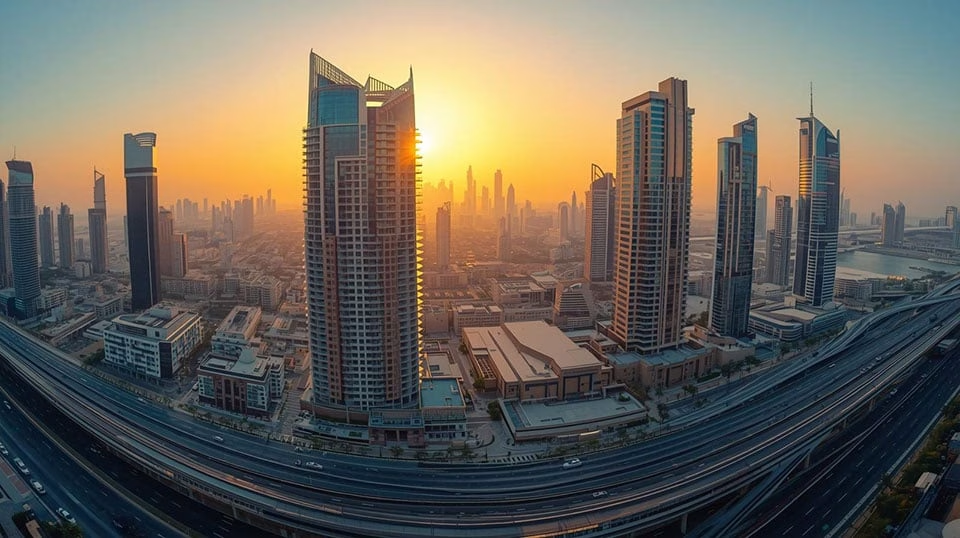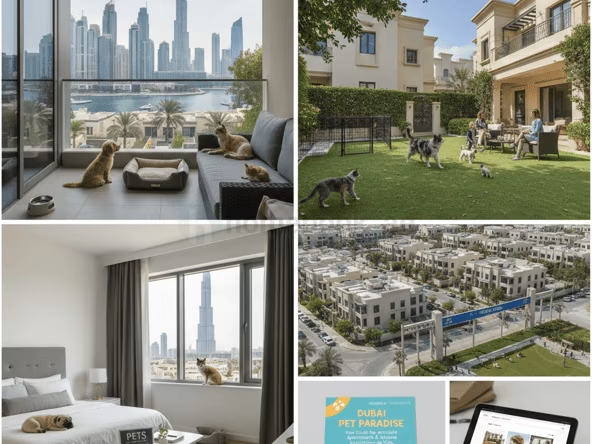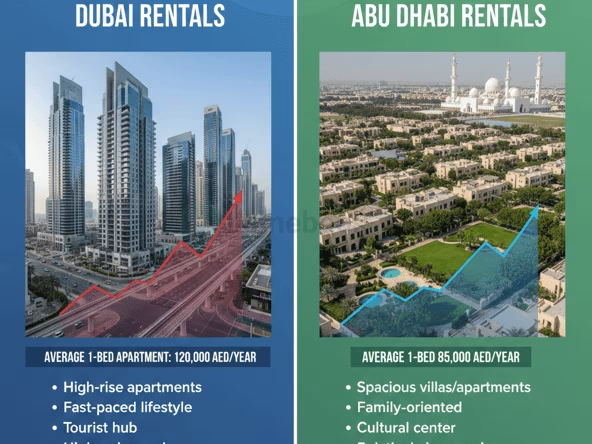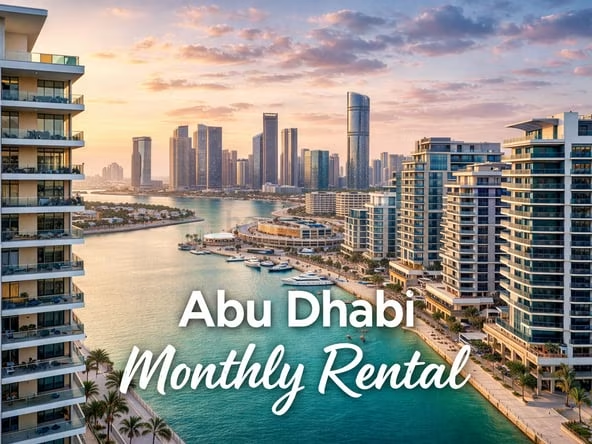Moving to Dubai is exciting — and a little overwhelming. The city has a reputation for opportunity, modern living, and a buzzing international community. Every year, professionals arrive for work contracts, students enroll in universities, and expats set out to build a new life under the sun.
But there’s one practical hurdle most people face right away: where to live. Signing a year-long lease before you’ve even unpacked your bags can be risky. If you’ve just landed in Dubai, it’s not easy to figure out straight away which neighborhood suits you best or how the daily commute will play out.
That’s why many people begin with a month to month rental Dubai. It buys you time to breathe, settle in, and see the city for yourself before tying yourself to a long contract. Some newcomers go for a short term rental Dubai in serviced apartments because they like the extras — things like cleaning, reception desks, or an on-site gym.
Others look for furnished apartments Dubai monthly, which are often the most practical choice since you can simply bring your suitcase and start living without worrying about furniture or utility setups.
In this guide, we’ll talk about the different kinds of rentals available, which areas are most popular, what the average costs look like, and the steps you can take to secure a place even before you arrive.
Why Month-to-Month Rentals Are Ideal for Expats in Dubai?
Flexibility when everything else is uncertain
When you move to a new country, things are in flux: job, friends, where you want to live. A month-to-month rental gives you breathing room — you’re not tied down. If you find the neighborhood noisy, or you like a different commute, you can change without big penalties.
Lower upfront costs, less risk
Long-term leases often ask for big deposits, agency fees, several months’ rent in advance. Month-to-month rental options reduce that burden. You don’t need to pay for furniture or long-term utilities set-up in many furnished places.
Try neighborhoods before committing
Dubai is huge and varied. What feels right online or in photos might feel different in person—traffic, noise, local amenities, vibe. Month-to-month rentals allow you to sample different areas (Marina, Business Bay, Al Barsha, etc.) before you decide where you really want to stay.
All-inclusive & move-in ready options
Many month-to-month rentals are already furnished and include utilities or internet. That means fewer logistics: no furniture shopping, no utility installations. You can arrive and settle in with minimal fuss.
Good for short gigs, work trips or transitions
If you’re coming for a few months for work, or waiting for long-term visa/permits, or just testing the water before moving fully, month-to-month works perfectly. You get somewhere nice to stay without risking a long lease you might break.
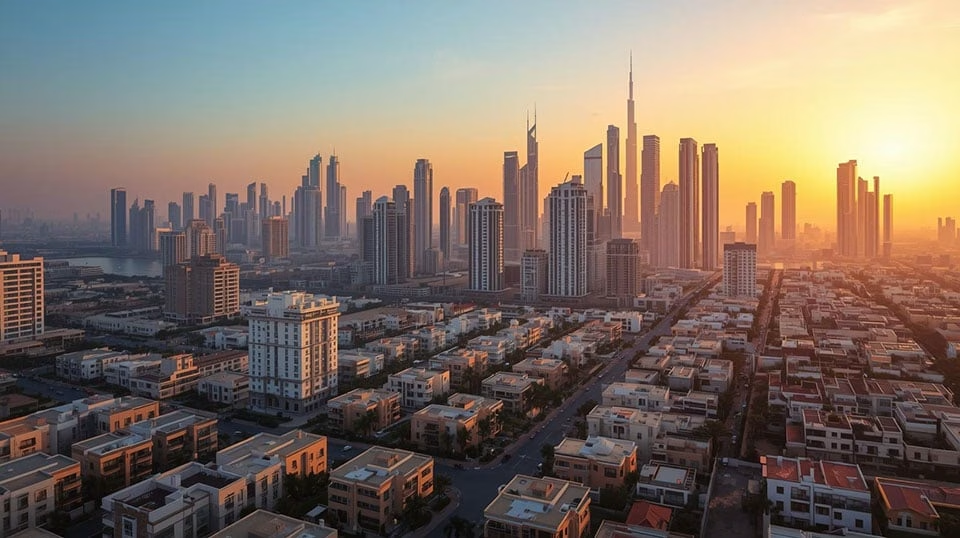
Popular Types of Month-to-Month Rentals in Dubai
When you start looking for monthly rentals in Dubai, a few main choices tend to pop up. Each type of rental has its own perks, so it’s worth looking closely before you decide what feels right for you.
Serviced or Hotel Apartments
Think of these as hassle-free living. You walk in with your suitcase and everything’s already set up. Managed by hotels or property companies, they usually cover the basics like furniture but also throw in extras — cleaning, a reception desk, maybe even access to the gym or pool downstairs. Great if you don’t want to deal with chores.
Furnished Apartments
Not always hotel-level, but ready to move into: furniture, kitchenware, maybe even internet and TV. These let you avoid buying or transporting big stuff. Good middle ground in price and comfort.
Studios / One-Bedrooms
If you’re solo or a couple, studios or 1BRs can hit the sweet spot. It is compact, private, and often cheaper than larger units. Many come furnished in month-to-month listings.
Shared Housing & Bed Spaces
Room-sharing or renting a single room in a shared flat saves money. You’ll share kitchen or living room areas. Less privacy, but more affordable and socially good if you’re okay with communal living. (Though not always heavily promoted in some listings.)
Holiday / Short-Stay Rentals / Airbnb-Style Options
Especially useful for very short stays (few days to a couple of months). These often feel like a mix between hotel + apartment. Sometimes pricier per night, but highly flexible.
Best Areas in Dubai for Short-Term Monthly Rentals
When choosing a place to stay month by month in Dubai, location matters almost as much as the price. These neighbourhoods come up often for short-term rentals, for good reasons:
Dubai Marina & JBR
Waterfront views, beach access, lots of cafés and restaurants. If you love being near the sea and don’t mind slightly higher rents, this gives you a great lifestyle. Expect lively evenings and good walkability.
Downtown Dubai & Business Bay
Ultra-central. You’re close to landmarks (Dubai Mall, Burj Khalifa), business offices, and major metro lines. It’s ideal for professionals who want minimal commute. Prices are higher, but the convenience often makes up for it.
Deira & Bur Dubai
Older, more character-filled neighbourhoods. More affordable. Lots of local shops, markets, and easy access to public transport. If budget is tight, this is where you’ll get more for your money.
Al Barsha & similar suburban communities
More relaxed, more space. Good for families or students, with shopping centres, parks, and often better deals. Not quite as flashy as Marina or Downtown, but a great compromise.
Emerging / developing areas (e.g. Dubai Creek Harbour, JVC)
These are newer options. They might still be “under development” in some respects, but rents tend to be lower, amenities improving, and you get modern apartments. Good if you’re okay with something less established.
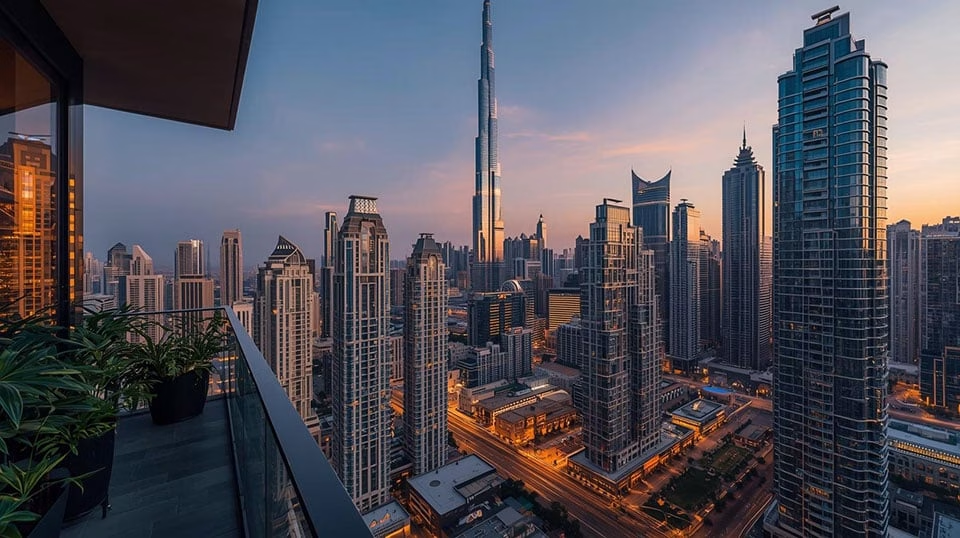
Average Costs of Month-to-Month Rentals in Dubai
Practical Tips
If you pick a place further away from the city centre, you’ll pay much less. But factor in transport time/cost. Luxury services (gym, pool, concierge) add a premium — sometimes 20-40% extra.
“Furnished” usually means furniture, kitchen basics, AC. If internet or utilities are included, check the fine print; sometimes they’re extra.
Seasonal demand (events, peak travel seasons) can push rents up temporarily.
Hotel or serviced apartments cost more per square metre than regular apartments because of added services and location.
| Type of Rental / Location | Typical Monthly Rent (AED) | What’s Included / Notes |
| Studio / Small 1-bedroom (less central / budget areas, furnished) | ~ 3,500 – 8,000 AED | Basic furnished units; minimal amenities; maybe just furniture + AC + basic utilities. |
| 1-Bedroom in mid-range areas | ~ 10,000 – 15,000 AED | Better amenities, maybe gym/pool, good location outside prime zones. |
| 1-Bedroom in luxury / prime areas (Marina, Downtown, Palm) | ~ 17,000 – 33,000 AED | Premium views, top-facilities, high standards, often hotel-style or serviced. |
| 2-Bedroom apartments (mid to prime) | ~ 12,000 – 25,000+ AED | More space; often family-friendly; luxury ones much higher. |
| Hotel / Serviced Apartments (1-bedroom in prime areas) | ~ 18,000 – 32,500 AED | Includes cleaning, concierge, possibly utilities; these are luxury hotel-apartment hybrids. |
Steps to Secure a Monthly Rental Before Arrival
Start with Trusted Platforms like Homebook
Don’t wait until you land to begin searching. It’s easier if you spend some time online first. Homebook is one of the safer sites and usually has fresh listings. Use the filters for “furnished” and “monthly” so you don’t waste hours scrolling through long-term contracts. Always check that the ad is verified — it’s a quick way to avoid scams.
Work with a Licensed Agent
If you’re new to Dubai, the rental process can feel messy — different rules, deposits, and plenty of small details to figure out. A licensed agent can really help here. They’re registered with RERA, which means they’re authorized to handle rentals. More importantly, they deal with this stuff every day, so they know what’s normal and what’s not. A good agent will walk you through the contract, point out things you might have missed, and sometimes even bargain with the landlord on your behalf.
Secure the Place Before You Fly
If you come across an apartment that feels right, ask the landlord or agent to hold it for you. Usually, this means putting down a small deposit. Don’t forget to ask for written confirmation — even a quick email works. This gives you peace of mind. The property won’t disappear while you’re still abroad.
Get Your Documents Ready
It helps to have your papers together before you even start talking to landlords. At the very least, you’ll need a copy of your passport and a visa or entry permit. Some landlords also want proof that you can pay the rent — maybe a job contract or a salary letter. If you’ve got these ready, the whole process moves faster, and you don’t risk losing a good apartment while you scramble for paperwork.
Check the Contract and Register with Ejari
Don’t rush through the lease. Sit down and actually read it — the rent amount, when it’s due, what happens if you leave early, and whether bills like water and electricity are included. These details matter. In Dubai, every rental contract has to be registered with Ejari. It’s the system that makes the lease official and gives you legal protection. Without it, you’re basically on your own if a problem comes up with the landlord.
Documents You’ll Need as a Foreigner
Before signing a rental in Dubai, landlords will ask for certain documents, and having them ready makes everything smoother. At the top of the list is your passport copy — without it, nothing moves forward. You’ll also need a visa or entry permit.
If you’re still on a tourist visa, many landlords accept that for short-term or month-to-month rentals, though you’ll have to update it once your residency visa is issued. Landlords almost always ask for a security deposit. It’s usually about a month’s rent and you get it back when you move out, as long as the place is in good shape.
For contracts that run longer than a few months, some owners prefer post-dated cheques instead of monthly cash payments. And if you’re moving for work, expect to show proof that you can cover the rent — a job contract or a salary letter is normally enough.
Having these papers ready before you start the process saves time and helps the landlord take you seriously.
Tips for Avoiding Rental Scams in Dubai
Always make sure the agent or landlord’s information is accurate. Ask to see their broker ID and compare it with the details in official directories. Don’t pay any deposit or rent before seeing the place in person (or at least via a live video walk-through).
Be especially wary if someone pressures you to pay “right now” without showing what the property looks like. Be suspicious of listings that are much cheaper than similar ones in the same area. If the deal seems “too good to be true,” it probably is. Check a few listings nearby to compare.
Read the tenancy contract carefully. Don’t just take promises at face value — get them written into the contract. If the place is furnished, the list of furniture should be there. Same with utilities or any “all-inclusive” offer.
Check the small stuff too, like how much notice you need to give, or who fixes things when they break. And if the landlord says they won’t register the lease with Ejari, that’s a sign to back out.
Keep proof of everything while you’re at it.
Screenshot the ad, save your chats with the agent, and don’t hand over money without a receipt. Those little records can make all the difference if problems show up later.
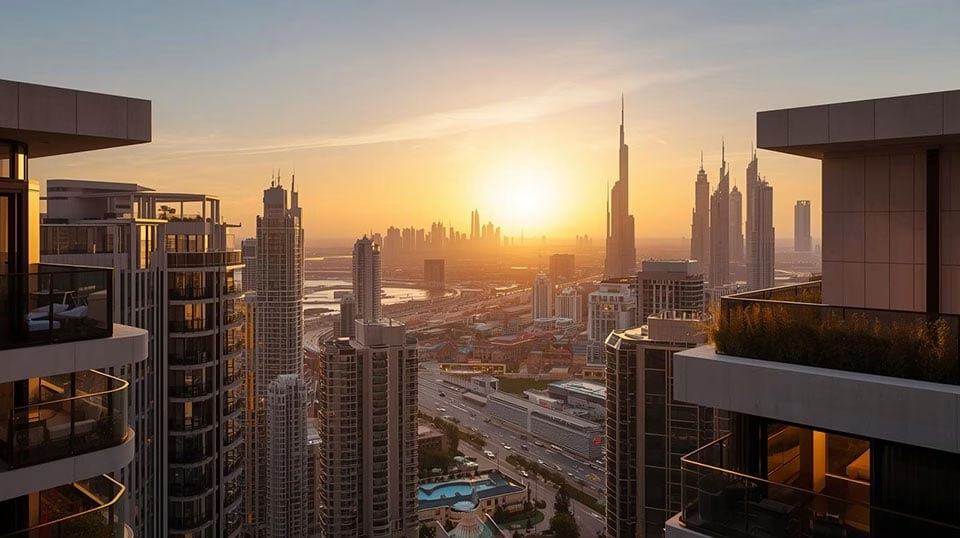
Benefits of Using Homebook for Month-to-Month Rentals
- Many apartments come ready with furniture, so you can just bring your suitcase.
- A lot of listings include internet and utilities in the rent — one less thing to set up.
- Ads are verified, which cuts down the risk of getting tricked by fake offers.
- You can search directly for short-term or monthly stays instead of scrolling through year-long leases.
- The price shown is usually what you’ll actually pay, not a “starting rate” with hidden extras.
- Photos and virtual tours give you a real feel for the place before you commit.
- If you run into a question, there’s support on hand to help.
- The platform is built with newcomers in mind, so it explains what paperwork you’ll need in plain language.
- You’ll find places in all kinds of areas — whether you want something lively like Marina or low-key like Deira.
- The booking process is straightforward: pick, confirm, and move in without long delays.
Conclusion
Moving to Dubai is exciting, but housing can be the first real headache. Locking into a year’s lease when you don’t yet know the city is a gamble. That’s why starting with a flexible rental makes sense.
Choosing a month to month rental Dubai gives you the space to settle in slowly. You can test out a neighborhood, see how the commute feels, and move if it doesn’t fit. Some newcomers like the comfort of a short term rental Dubai in a serviced apartment, while others pick furnished apartments Dubai monthly because they just want an easy move-in.
Whatever route you take, start the search early and stick with verified ads — it’s the best way to avoid headaches later.
Frequently Asked Questions
Yes. Many landlords are fine with short stays, and you can usually arrange a month to month rental Dubai with just your passport and a tourist visa.
Often they are. A lot of furnished apartments Dubai monthly will already have Wi-Fi, water, and electricity in the rent, but always double-check.
Most of the time, yes. That’s the whole point of a short term rental Dubai — you can add another month if you like the place.
Short-term rentals are flexible and run month by month. Long-term contracts in Dubai are usually for a year and need bigger deposits.
Not always. Some month to month rental Dubai agreements accept online payments, though longer commitments may still require post-dated cheques.
